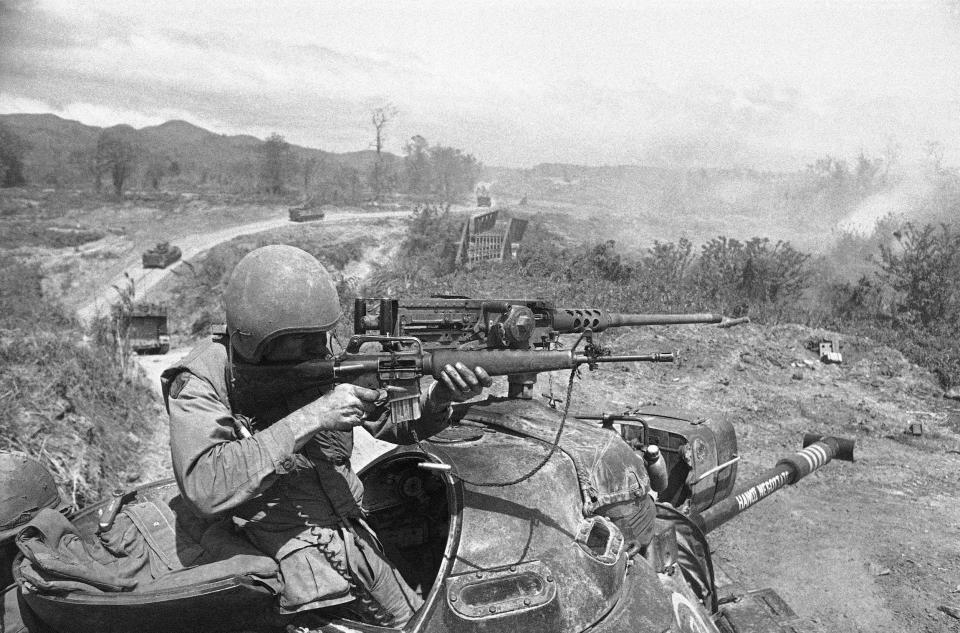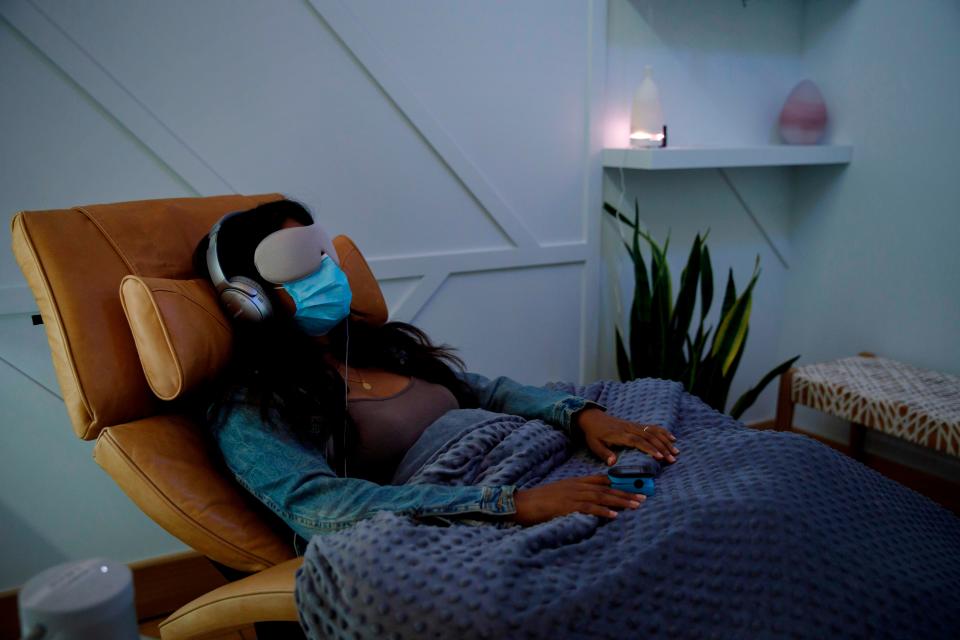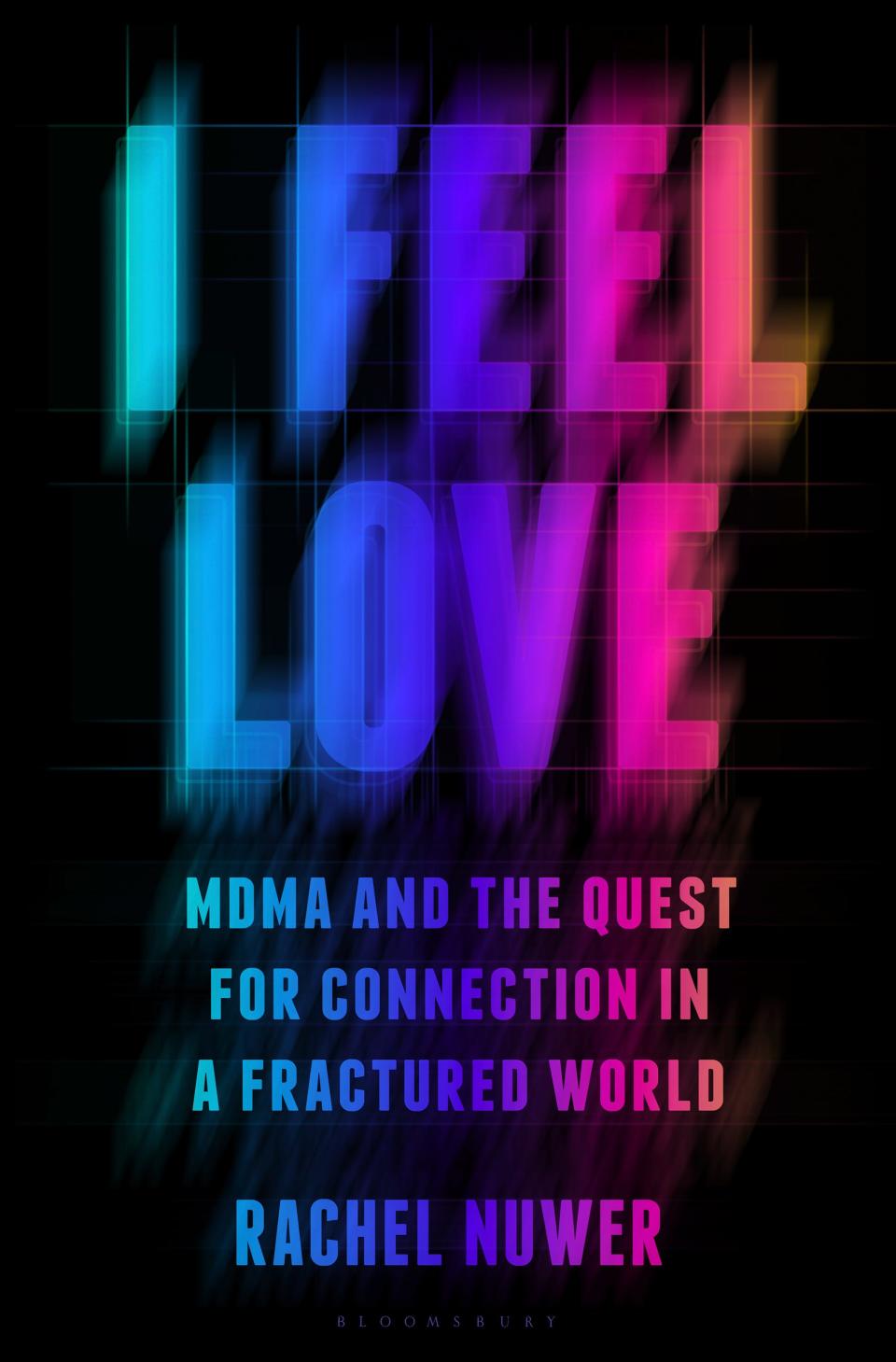-
MDMA, a schedule I drug, has attracted attention for its potential use as a therapeutic drug.
-
Researchers have used it to successfully treat depression, post-traumatic stress disorder, and more.
-
Rachel Nuwer tells how therapy helped a veteran overcome post-traumatic stress disorder in her book “I Feel Love.”
Psychedelic therapy appears to have gone from marginal experimental treatment to widespread acceptance overnight. This, in part, is due to the many anecdotes about its success in helping treat conditions such as post-traumatic stress disorder.
In her new book “I Feel Love,” author Rachel Nuwer tells the story of Vietnam veteran John Reissenweber, whose time in the service transformed his personality and left him feeling isolated from everyone in his civilian life.
The following is an excerpt from Rachel Nuwer’s new book, “I Feel Love: MDMA and the Search for Connection in a Fractured World.“
John never considered that he might have any kind of problem and he certainly never thought that he might have PTSD. “Oh hell no! To have PTSD, you’re weak,” he said of his past mindset.
He didn’t even apply to the VA for the benefits he was entitled to for his ruptured eardrums because “he didn’t need anyone’s help,” he said. “I didn’t need anyone to tell me I was disabled, because I came back with ten fingers on my hands and ten on my toes and others didn’t.”


In 2003, John’s life changed for the better when he met Stacy Turner, his current wife. They had connected online and the first time he saw her in person he exclaimed, “My God, you’re so beautiful!”
“How can you not love a man who tells you that with all this warmth in his eyes?” Stacy said. “John loved me very much and I felt the same way about him too.”
Things were great for about half a year, but then Stacy “started to see the cracks,” as she put it. One beautiful afternoon, they were sitting on a blanket in a wooded area of San Francisco’s Glen Canyon Park, having a picnic, when John’s demeanor suddenly changed. He began scanning the area and became “really cold and distant,” Stacy recalled.
“Then he starts talking about strategic and vulnerable positions and where you might worry about a firefight and where people might hide. I looked at him and thought, ‘He’s back in Vietnam.’ I just corked the wine, packed it up and said, ‘ We’re going home, this is not a good place for you.'”
Stacy loved John, but the stress and strain of tiptoeing around his temper got worse over the years. “No matter what I said or did, the possibility that it was wrong was enormous, and if it was wrong, the results were catastrophic,” she said.


She kicked him out twice, but they always got back together. Finally, Stacy told John that she had to seek professional help or it would be over. A psychiatrist diagnosed him with post-traumatic stress disorder, but psychotherapy did not help things. One day, her psychiatrist gave her a copy of Michael Pollan’s “How to Change Your Mind” and told her about the MAPS MDMA trials.
“I had a very strong aversion to mind-altering drugs, because at this point I knew I was pretty well strapped,” John said. “I was afraid that if I did something I would really fall apart.”
Stacy and John’s doctor convinced him to apply for the trial anyway. But when he underwent a PTSD evaluation to determine if he qualified, he returned to his old habit of downplaying his symptoms.
“I lied to myself again, like I did my whole life since I came back from Vietnam,” he said. It worked: Shortly after taking the test, he received a polite letter telling him that he did not meet the criteria for the study.
Stacy disagreed. She approached Gregory Wells, a psychologist who co-directs the San Francisco trials, and asked him to take a closer look at his evaluation process.
“If you ruled John out for having high blood pressure, I would understand,” he said. “But if you fired him because you thought he wasn’t wrong enough, you really missed the boat and he totally froze you.”
Stacy’s letter worked. In August 2019, John arrived at Wells’ office for his first MDMA-assisted therapy session. “I felt a combination of fear and determination,” he said. “It got to the point where I realized maybe there’s something to this, maybe I have some PTSD. And maybe this can help.”
As he reclined on the daybed with headphones and glasses on, it didn’t take long for John to “realize something was up,” he said. He felt deeply affected by the music and disconnected from his own body. Suddenly, a vision appeared in his mind.


He was standing on a lunar plane reminiscent of the Apollo 10 “Earthrise” photograph, with stars everywhere. In the lower left corner was a dark and sinister hole, which John chose to ignore.
Instead, he focused on a drop of liquid-like energy that appeared in front of him, and John realized that it represented his consciousness merging at the moment of his birth. “Everything was nice, calm, serene,” John said. “I felt a connection to everything.”
However, as a second drop appeared and hit the ground, John heard helicopters, gunshots and screams – the disruption Vietnam had caused to his psyche. Although John’s therapists were “really great,” he said, he remained silent. “I didn’t want to talk to anyone about this,” he said. “I was doing it on my own.”
In the month after that first session, John felt more relaxed than he had in decades. He could take a walk outside and enjoy feeling the breeze on his skin. He could have a conversation with Stacy and imagine what she was thinking and feeling.
John began his second session of MDMA-assisted therapy eager to see what other benefits it could bring. Immediately, his mind brought him back to the same lunar landscape. The dreaded cesspool was still there, but it concentrated only on the first drop, and the second never came.
He lay on the couch all day, hugging himself, rocking back and forth, and petting a dog that one of his therapists had brought. “I was taking care of that child that I am,” he said.
After his second session, for the first time, John began to remember his dreams. However, a few days before his third and final session, he had a terrible nightmare: he was dressed in military clothing, scared to death, as the sounds of mortar explosions overwhelmed him.
He was left with a feeling of dread and entered the last MDMA session determined to confront the cesspool in the corner. “You can’t shy away from it anymore,” he said to himself, and jumped right into the topic.
He thought he would get through it, “as Pollan’s book said, ‘pass into the light,'” he explained, but he became “completely and totally stuck.” John spent the rest of the session trapped in the pit, unable to move.
The next morning, his entire body ached. When he stopped by the therapist’s office for his integration session, he was too terrified to return to the room. He knew he needed more help than the limited clinical trial could provide, so he got a new therapist.


With his guidance, he realized that the cesspool represented the anger and pain he had felt since Vietnam. That revelation allowed her to examine his life again, pulling out memories, one by one, like a series of index cards that he could rearrange into a coherent whole.
While MDMA-assisted therapy alone didn’t cure John, it was “like an electric shock to the system,” he said. He revealed his pain and his fears and, more importantly, showed him that he had a right to feel that way.
“It was like a complete and total rebirth,” he said. “It gave me the ability to look at myself and say, ‘You know, you don’t have to be perfect, you don’t have to be right, it’s okay to be who you are.’ Without it, I could have taken all the cognitive behavioral therapy in the world and “nothing would have happened.”


John continued with traditional therapy and also became involved in the VA, where he connected with other veterans. In October 2021, he began volunteering with a VA program aimed at rehabilitating veterans through golf.
She no longer feels like she’s “running at 100 percent” all the time, she said, and she no longer feels thrown into a tailspin by the small, inevitable obstacles that daily life throws her way. Most importantly, she has been able to connect more deeply with Stacy, whom she calls her guardian angel.
“I can talk to Stacy,” he said. “I’m not afraid to do that anymore.”
From I Feel Love: MDMA and the Quest for Connection in a Fractured World now available from Bloomsbury Publishing. Copyright © 2023 by Rachel Nuwer. All rights reserved.
Read the original article on Business Insider